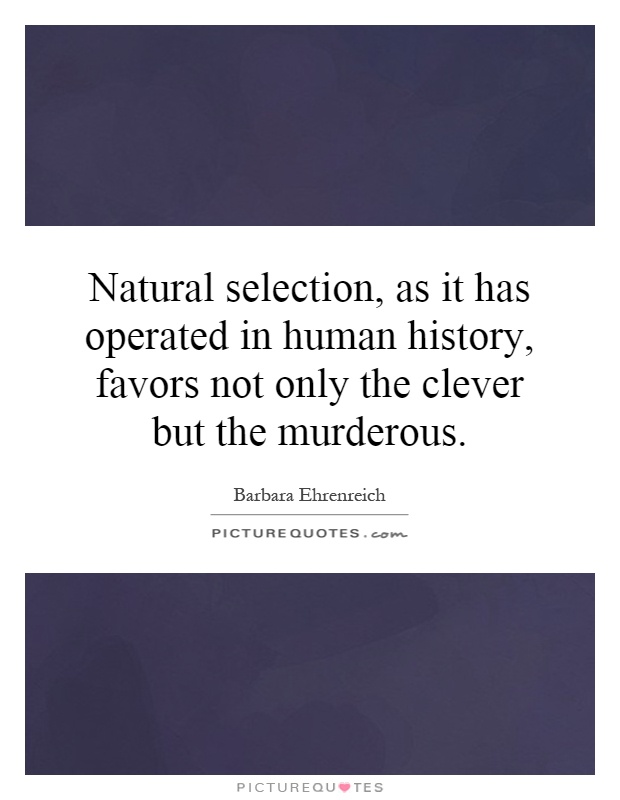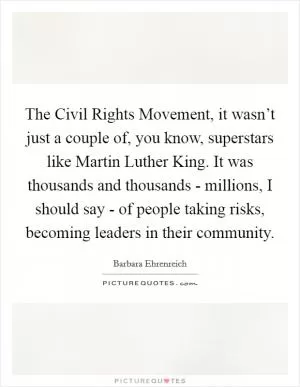Natural selection, as it has operated in human history, favors not only the clever but the murderous

Natural selection, as it has operated in human history, favors not only the clever but the murderous
Barbara Ehrenreich, a renowned social critic and author, has long been a vocal advocate for social justice and equality. In her work, she often challenges conventional wisdom and sheds light on the darker aspects of human nature. One of the most controversial ideas she has explored is the concept that natural selection, as it has operated in human history, favors not only the clever but the murderous.Ehrenreich's argument is rooted in the theory of evolution, which posits that individuals who possess advantageous traits are more likely to survive and reproduce, passing those traits on to future generations. In the context of human history, she argues that those who are willing to resort to violence and aggression in order to achieve their goals are more likely to succeed and thrive. This is because, in a competitive environment where resources are scarce and survival is at stake, those who are willing to do whatever it takes to come out on top are more likely to do so.
Ehrenreich's theory is supported by numerous examples from history, where individuals who have engaged in acts of violence and brutality have risen to positions of power and influence. From ruthless conquerors like Genghis Khan and Alexander the Great to modern-day dictators like Adolf Hitler and Joseph Stalin, history is replete with examples of individuals who have used violence as a means to achieve their goals.
However, Ehrenreich's argument is not without its critics. Some argue that natural selection does not necessarily favor the murderous, but rather those who are able to adapt and thrive in their environment. They point to examples of individuals who have achieved success through cooperation, collaboration, and empathy, rather than violence and aggression.
Ultimately, Ehrenreich's theory raises important questions about the nature of human behavior and the role of violence in shaping our society. While it is certainly true that individuals who are willing to resort to violence may have a competitive advantage in certain situations, it is also important to recognize the value of cooperation and empathy in building a more just and equitable world. As we continue to grapple with these complex issues, Ehrenreich's work serves as a powerful reminder of the need to confront the darker aspects of human nature in order to create a more compassionate and inclusive society.












 Friendship Quotes
Friendship Quotes Love Quotes
Love Quotes Life Quotes
Life Quotes Funny Quotes
Funny Quotes Motivational Quotes
Motivational Quotes Inspirational Quotes
Inspirational Quotes